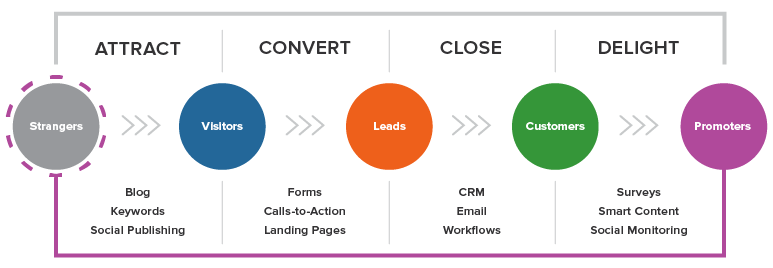
You can earn passive income through real estate in many ways. There are several ways to make passive income from real property. These include house flipping, REITs, Peer-to peer lending, and renting property. This article will cover the basics of passive real estate income. These tips will help you make your investment successful if you don't have the funds. Read on to learn more about the possibilities of passive income from real estate. You will be able to achieve your real estate goals with just a few simple steps.
Renting properties
Renting properties could be a good investment to create passive income. Although you should select the right tenants to avoid problems, there are some things that you can do to maximize your income. Additionally to carefully screening potential tenants, it is also important to be on the lookout for vacant homes. If you fail to screen potential tenants carefully, you may end up losing money, having to endure a lengthy eviction process, or even a lawsuit.

Flipping houses
Many sources can provide passive income through house flipping. Fixer-uppers, foreclosure properties, and rental properties can be flipped to generate income. You can sell these homes as turnkey rental properties, or as fully renovated, fully rented homes. The new owners can manage the rental income, and the property is ready to rent. House flipping is a popular and lucrative way to generate passive income. The process is streamlined with technology.
Peer-to-peer lending
Passive income investment options can vary when it is about investing in real estate. Single-family houses, for instance, can be handled easily, while apartment buildings require more involvement. Apart from the rental payments, you will also need to manage the property and pay insurance. It is possible to make passive income by investing in storage facilities. Demand for these properties is high in virtually every populated region in the United States, and you can generate passive income by leasing out your spaces to tenants.
REITs
For the average investor, passive income from real estate REITs is a great way to diversify their portfolios. With a unit price as low as $500, these securities offer low investment costs. However, if you are looking to earn income from real estate, these REITs must give at least 90% of their taxable income back to shareholders. This leaves less money to reinvest. This article will discuss why passive income from real-estate REITs is a great option.

Storage facilities
If you have a self-service storage facility, you can generate passive income from year-round business. Although some areas are seasonal like Quebec, there is a constant demand for space. You can expect to have different customers depending on where you are located. Below are some revenue-generating options for storage facilities. While some of these ideas may require extra time and effort, others will generate steady income.
FAQ
How long does it take to get a mortgage approved?
It depends on several factors such as credit score, income level, type of loan, etc. Generally speaking, it takes around 30 days to get a mortgage approved.
How do I calculate my rate of interest?
Market conditions impact the rates of interest. The average interest rate over the past week was 4.39%. Add the number of years that you plan to finance to get your interest rates. If you finance $200,000 for 20 years at 5% annually, your interest rate would be 0.05 x 20 1.1%. This equals ten basis point.
Can I afford a downpayment to buy a house?
Yes! Yes. These programs include FHA loans, VA loans. USDA loans and conventional mortgages. You can find more information on our website.
What is reverse mortgage?
Reverse mortgages are a way to borrow funds from your home, without having any equity. It allows you to borrow money from your home while still living in it. There are two types: conventional and government-insured (FHA). If you take out a conventional reverse mortgage, the principal amount borrowed must be repaid along with an origination cost. FHA insurance covers your repayments.
Is it possible fast to sell your house?
If you plan to move out of your current residence within the next few months, it may be possible to sell your house quickly. Before you sell your house, however, there are a few things that you should remember. First, you must find a buyer and make a contract. The second step is to prepare your house for selling. Third, you must advertise your property. Finally, you should accept any offers made to your property.
Statistics
- Some experts hypothesize that rates will hit five percent by the second half of 2018, but there has been no official confirmation one way or the other. (fortunebuilders.com)
- Based on your credit scores and other financial details, your lender offers you a 3.5% interest rate on loan. (investopedia.com)
- 10 years ago, homeownership was nearly 70%. (fortunebuilders.com)
- The FHA sets its desirable debt-to-income ratio at 43%. (fortunebuilders.com)
- Over the past year, mortgage rates have hovered between 3.9 and 4.5 percent—a less significant increase. (fortunebuilders.com)
External Links
How To
How to Manage a Rental Property
Although renting your home is a great way of making extra money, there are many things you should consider before you make a decision. We'll help you understand what to look for when renting out your home.
This is the place to start if you are thinking about renting out your home.
-
What factors should I first consider? Before you decide if your house should be rented out, you need to examine your finances. If you have any debts such as credit card or mortgage bills, you might not be able pay for someone to live in the home while you are away. Your budget should be reviewed - you may not have enough money to cover your monthly expenses like rent, utilities, insurance, and so on. ), it might not be worth it.
-
How much is it to rent my home? There are many factors that go into the calculation of how much you can charge to let your home. These include factors such as location, size, condition, and season. Prices vary depending on where you live so it's important that you don't expect the same rates everywhere. Rightmove reports that the average monthly market price to rent a one-bedroom flat is around PS1,400. This means that you could earn about PS2,800 annually if you rent your entire home. While this isn't bad, if only you wanted to rent out a small portion of your house, you could make much more.
-
Is this worth it? It's always risky to try something new. But if it gives you extra income, why not? Before you sign anything, though, make sure you understand exactly what you're getting yourself into. It's not enough to be able to spend more time with your loved ones. You'll need to manage maintenance costs, repair and clean up the house. Make sure you've thought through these issues carefully before signing up!
-
Is there any benefit? You now know the costs of renting out your house and feel confident in its value. Now, think about the benefits. Renting out your home can be used for many reasons. You could pay off your debts, save money for the future, take a vacation, or just enjoy a break from everyday life. No matter what your choice, renting is likely to be more rewarding than working every single day. If you plan well, renting could become a full-time occupation.
-
How do you find tenants? Once you decide that you want to rent out your property, it is important to properly market it. Online listing sites such as Rightmove, Zoopla, and Zoopla are good options. Once potential tenants reach out to you, schedule an interview. This will help you assess their suitability and ensure they're financially stable enough to move into your home.
-
How do I ensure I am covered? If you fear that your home will be left empty, you need to ensure your home is protected against theft, damage, or fire. In order to protect your home, you will need to either insure it through your landlord or directly with an insured. Your landlord will usually require you to add them as additional insured, which means they'll cover damages caused to your property when you're present. However, this doesn't apply if you're living abroad or if your landlord isn't registered with UK insurers. In these cases, you'll need an international insurer to register.
-
It's easy to feel that you don't have the time or money to look for tenants. This is especially true if you work from home. Your property should be advertised with professionalism. A professional-looking website is essential. You can also post ads online in local newspapers or magazines. Additionally, you'll need to fill out an application and provide references. Some people prefer to do the job themselves. Others prefer to hire agents that can help. Interviews will require you to be prepared for any questions.
-
What happens after I find my tenant?After you've found a suitable tenant, you'll need to agree on terms. If you have a contract in place, you must inform your tenant of any changes. You may also negotiate terms such as length of stay and deposit. While you might get paid when the tenancy is over, utilities are still a cost that must be paid.
-
How do I collect rent? You will need to verify that your tenant has actually paid the rent when it comes time to collect it. If they haven't, remind them. Before you send them a final invoice, you can deduct any outstanding rent payments. You can call the police if you are having trouble getting hold of your tenant. They won't normally evict someone unless there's been a breach of contract, but they can issue a warrant if necessary.
-
What are the best ways to avoid problems? It can be very lucrative to rent out your home, but it is important to protect yourself. You should install smoke alarms and carbon Monoxide detectors. Security cameras are also a good idea. Also, make sure you check with your neighbors to see if they allow you to leave your home unlocked at night. You also need adequate insurance. Do not let strangers in your home, even though they may be moving in next to you.